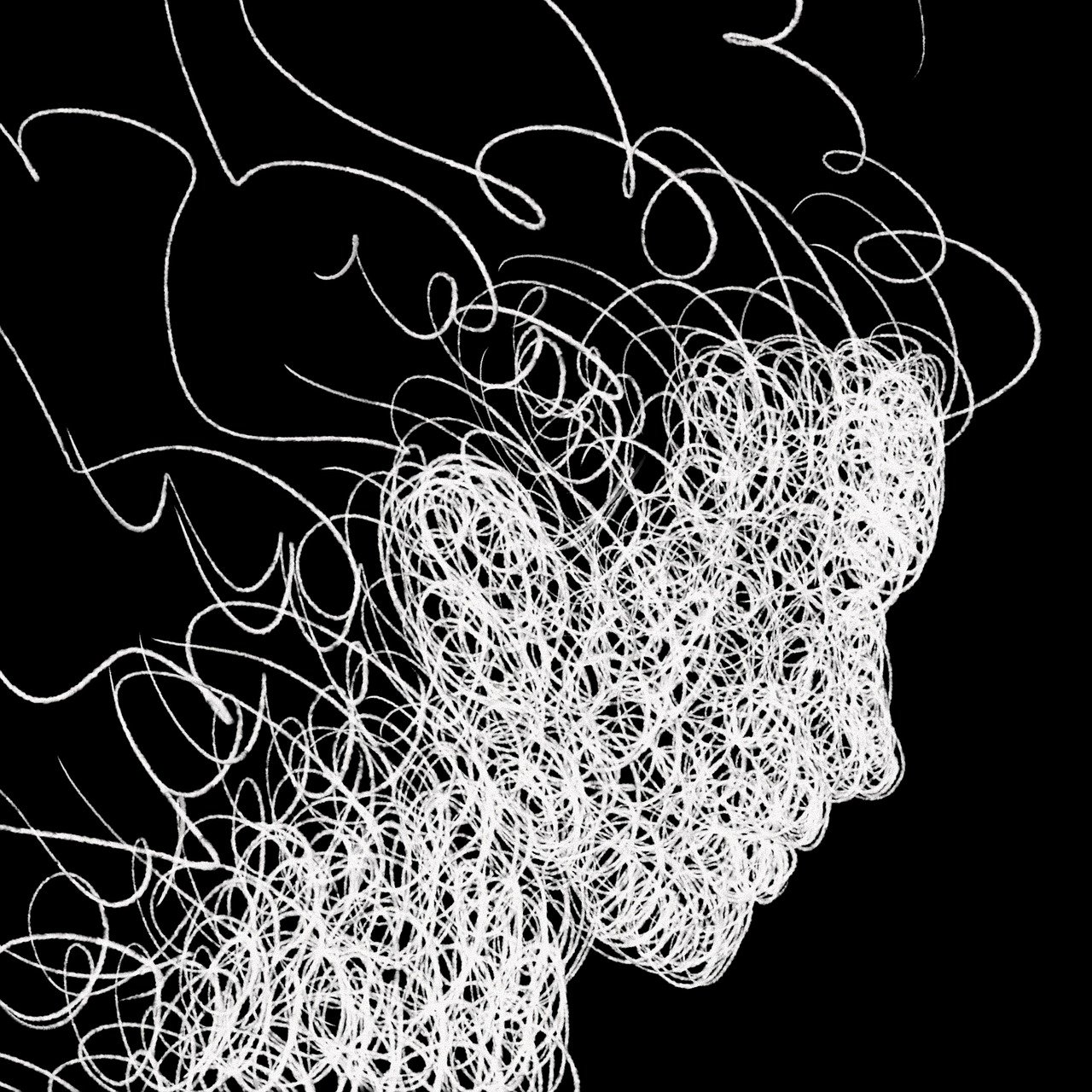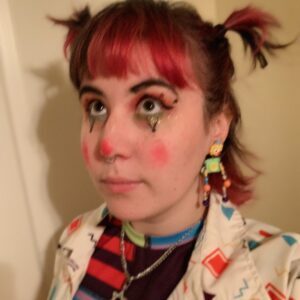It feels prophetically heavy that this is the moment in the year when we are restarting the Torah cycle.
We’ve been taken back to Bereisheet (the beginning) and the primordial chaos of tohu v’vohu. Formless and void, tohu v’vohu is the swirling celestial wilderness, before divinity started forming creation. It feels cosmically significant that we have been brought here, now. For today is a time that tohu is leaking — tearing — through our world of form. In the churning enormity of grief, in the unraveling of life, in the disorderly, multidimensional truths and pains and horrors. Tohu is here.
An essential human feature and flaw is the urge to eliminate ambiguity — to desperately package tohu into form — into something structured, clear, and contained.
It’s easier to refuse the multiplicity, the amorphousness, the churning chaotic infinity from which we originate, even as it reflects and refracts across our faces.
It’s so much more excruciating and confusing to attempt to hold so many things at once. If only anyone, anything, any “side” was one hundred percent just, righteous, and infallible. Tragically, that is a physical impossibility. Justice, righteousness, reality, and grief, are messy, multidimensional things. But I assure you, there is immense divinity in such things. As a queer non-binary person, multidimensionality is the foundation not just of my identity, but of my spiritual practice. And I believe this is also a deeply rooted Jewish value. Our oldest name —“Hebrews”— comes from the root עָבַר (avar): “to cross over, to overflow, to go beyond.” In these times, how can we live up to this name, as the ones who cross over, who overflow, who go beyond? Lech lecha: we are called to push ourselves past the old ways. We are called to transcend the parameters of our rhetoric and the limitations on our empathy. We are called to live up to the imperative of our heritage—and go beyond. Will we go?
I urge us to do so. I urge us to bear witness to this churning complexity of chaos and pain—as agonizing and soul wrenching as it is. I urge us not to jump to quell the tohu, not to jump to contain or reduce or rationalize these times into any simple form. We must realize how holy this tohu is. Let us bear to live with it for a moment, and allow it to break us open: allow it to expand our hearts, our perspectives, and our capacities for love.
The Hasidic rebbes have taught: “there is nothing so whole as a broken heart.”
Through this heartbreak, I desperately pray that we can find wholeness. But getting to this wholeness necessitates holding the whole enormity of heartbreak, not only our own, not only our “side,” or our people, but every inch: every innocent life that is in jeopardy, as so many are as we speak. Are we going to use the brutality and loss and grief we’ve experienced to justify brutality and loss and grief against others? If we affirm the sacredness of life, the essential Jewish value of pikuach nefesh, then how can we condone the extinguishing of the lives of innocent entrapped people? Let alone in the name of the innocent lives we have lost.
As we begin the Torah anew, is this the world we want to build? Or is this the world we have been living in that has been burning and breaking for so long.
Only in overflowing with the enormity of these times, can we find the wholeness of this heartbreak. And only through that wholeness can we access the revelation of peace. Indeed, wholeness is the root meaning of our Hebrew and Arabic word for peace, שָׁלוֹם/shalom and سلام/salaam. In Judaism, shalom is not just a concept or value, but is one of our names of divinity. It represents the quality of God that is peace — through the unified wholeness of our complex existence. May this be the God we are strong enough to call out to, to accept that we must answer to, and be strong enough to bring into the world as we begin reading the Torah anew.
In this time of atrocity, I believe this intersection with Bereisheet begs of us with an immensely weighty wisdom: we cannot simply sit and read about the birth of the world — we are urgently called to our vital role in its creation. In this existentially precipitous time —with so many lives lost — and so many more still at stake, may we rise to the call of our heritage, to be the ones who cross over, who overflow, who go beyond. Amidst a darkness and division and vicious cycle of old, may we choose to find and forge and form a light anew. May divinity open our lips with the courage to call out: “יְהִי אוֹר — let there be light.”

